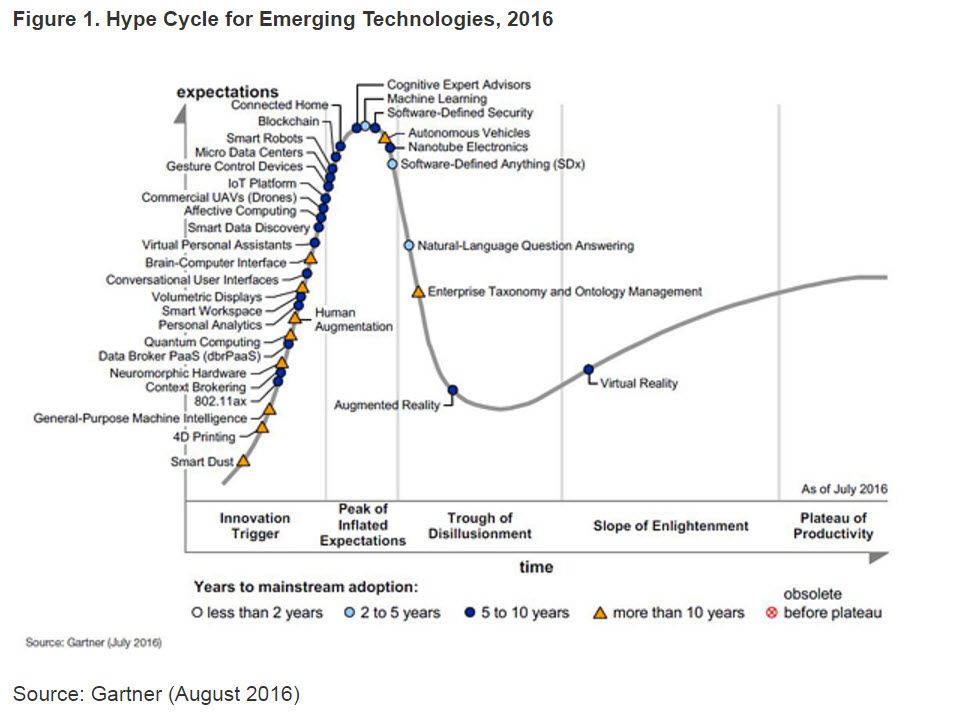Why the 2016 Hype Cycle for Emerging Technologies is all about Data

Every year, Gartner published the Gartner Hype Cycle for Emerging Technologies and today revealed the 2016 edition. Last year, Gartner tempered the expectations of Big Data, by predicting it would take another 5-10 before it would reach the plateau of productivity. This year, Gartner finally added “emerging” technologies such as the Blockchain and Machine Learning. Let’s have a look at the 2016 Hype Cycle for Emerging Technologies and see what it means.

Gartner identified three key technology trends that organisations need to track in order to gain competitive advantage:
1. The Perceptual Smart Machine Age
Gartner added ‘General Purpose Machine Intelligence’ as an ‘Innovation Trigger’ to this year’s hype cycle and expects it to take more than 10 years to reach the plateau of productivity. Of course, machine intelligence is nothing new, but that is (very) specific machine intelligence, i.e. a machine is extremely good in doing one, simple, task. General purpose machine intelligence is something different and requires extreme amounts of computing power and near-endless amounts of data, which is why it will probably take a lot longer. It is also called Artificial General Intelligence and it is an emerging field dealing with the development of ‘thinking machines’ with intelligence that is comparable with the human mind.
2. The Platform Revolution
Thanks to emerging technologies, new organisational forms are appearing of which the platform organisation seems very promising. Platform organisations are organisations that use (emerging) technologies to enable members of that organisation to benefit from economies of scale, while remaining independent. Organisations like Uber, AirBnB and Alibaba are examples of these new types of organisations. These platform-based business models can easily adopt new technologies and as such can benefit from a rapidly changing environment. Gartner refers to emerging technologies such as the Blockchain, IoT Platforms, Quantum Computing and Software-Defined Anything as the drivers behind the platform revolution.
3. Transparently Immersive Experiences
Thanks to emerging technologies, the lines between people, things, businesses will become transparent and will result in a more immersive relationship. Technologies such as AR/VR, Brain-Computer Interface, 4D printing or Volumetric Display are changing the interaction between people, organisations and things. How consumers will / want to experience your product or service, will be challenged dramatically thanks to these new technologies.
Although the Hype Cycle for Emerging Technologies changes every year, there is one common denominator in all these emerging technologies. They produce data, and lots of it. Organisations need to be ready for this data flood coming their way and they need to have the algorithms and technology ready to derive actions from it. Only then will they be able to benefit from these emerging technologies and create competitive advantage.
Image: dolphfyn/Shutterstock





